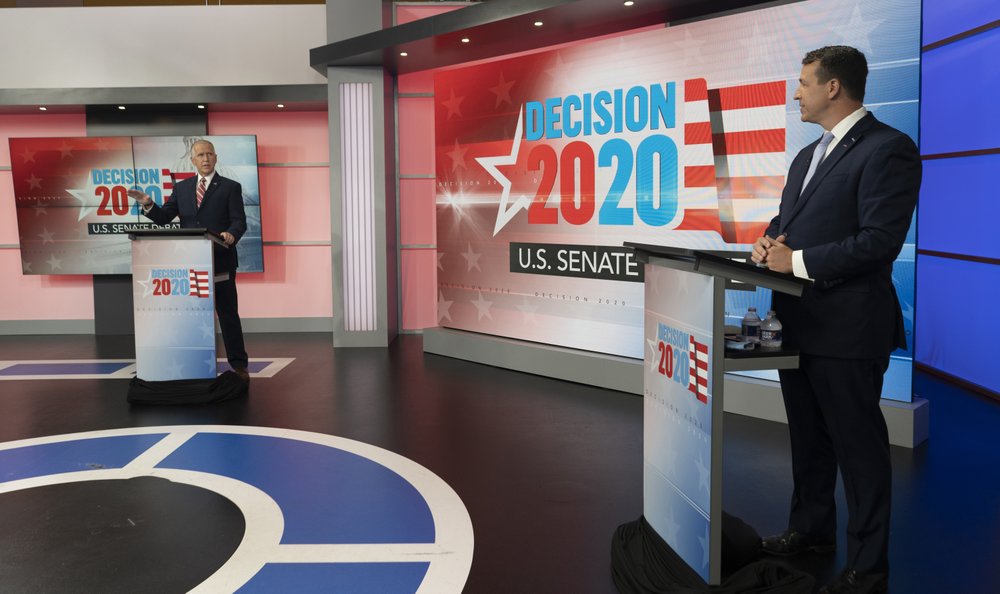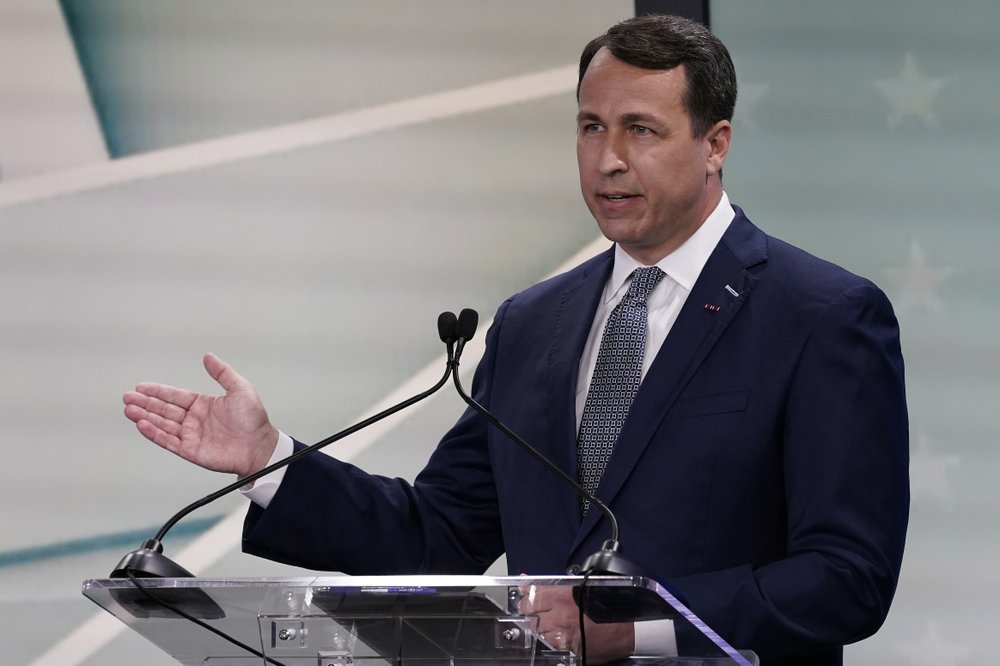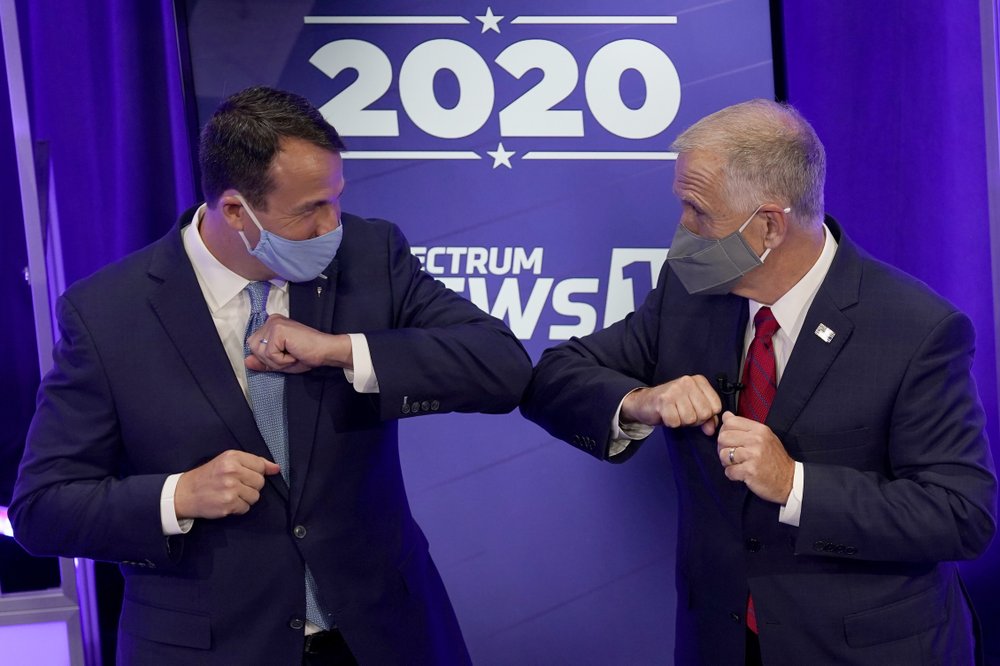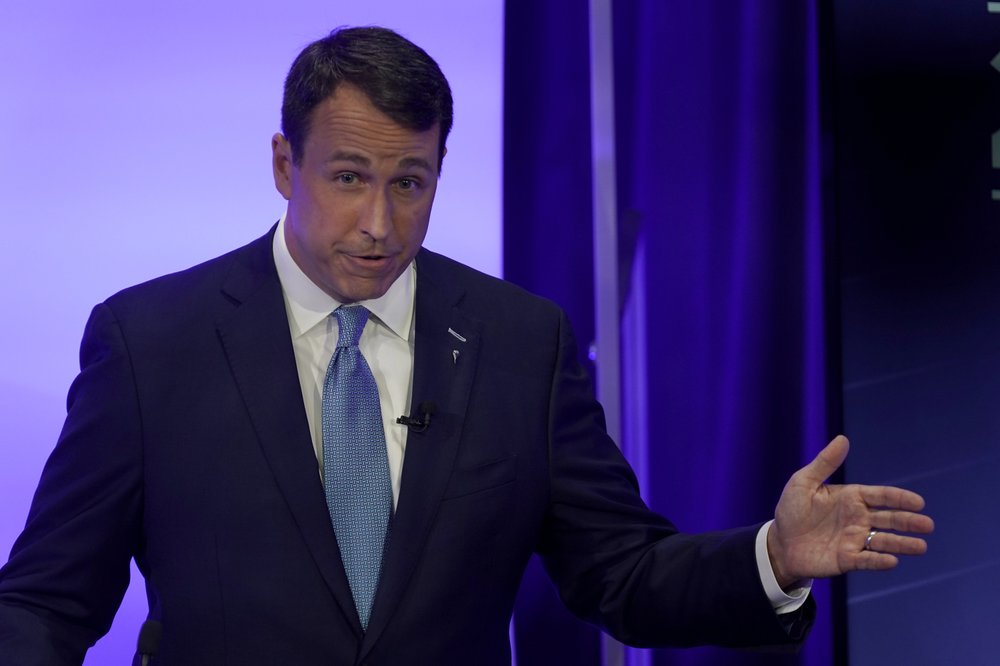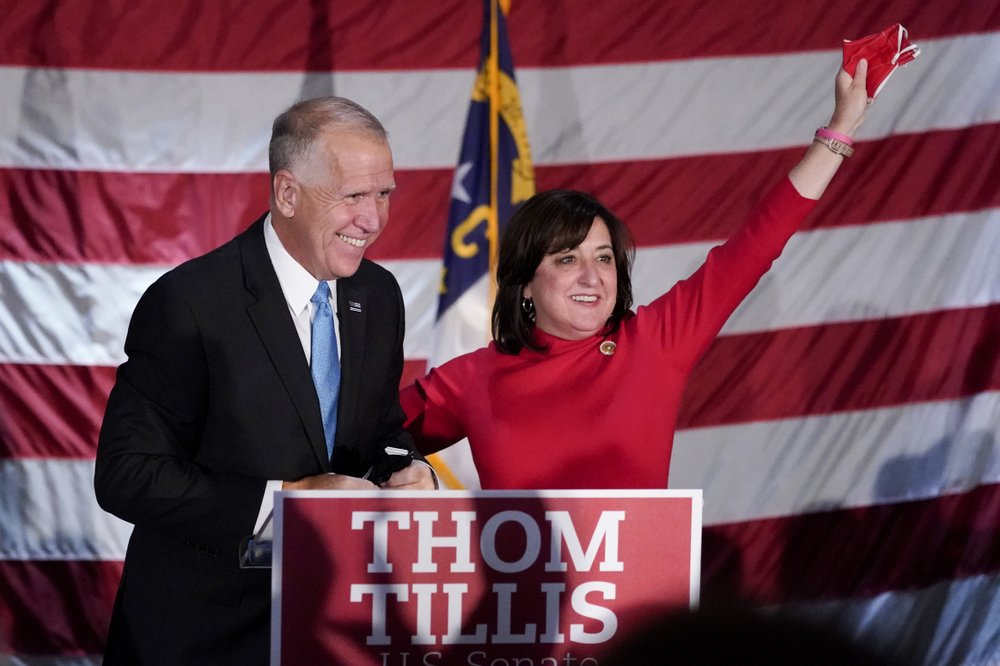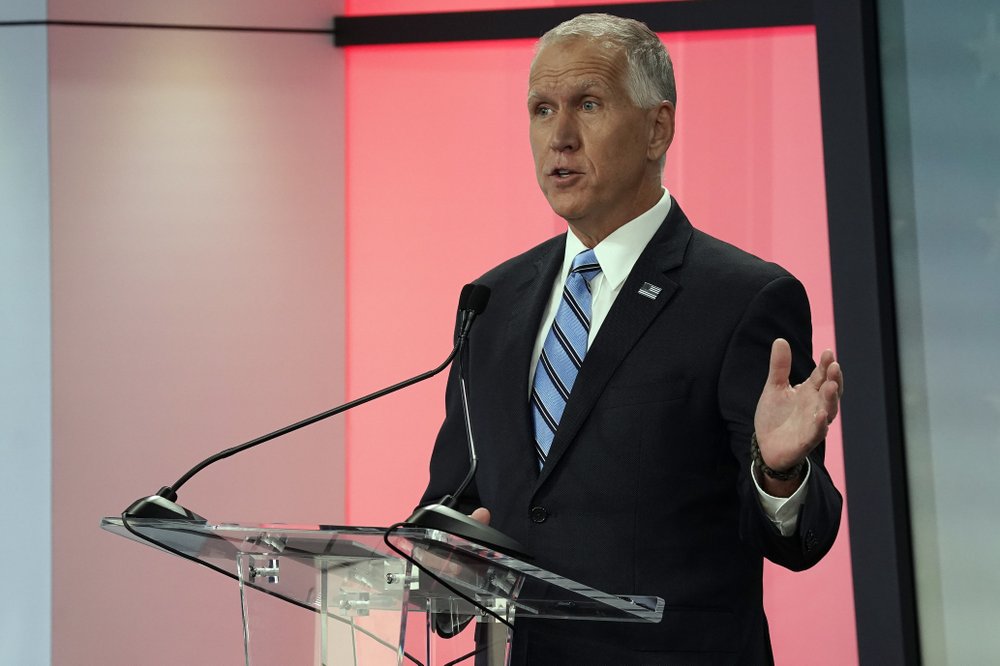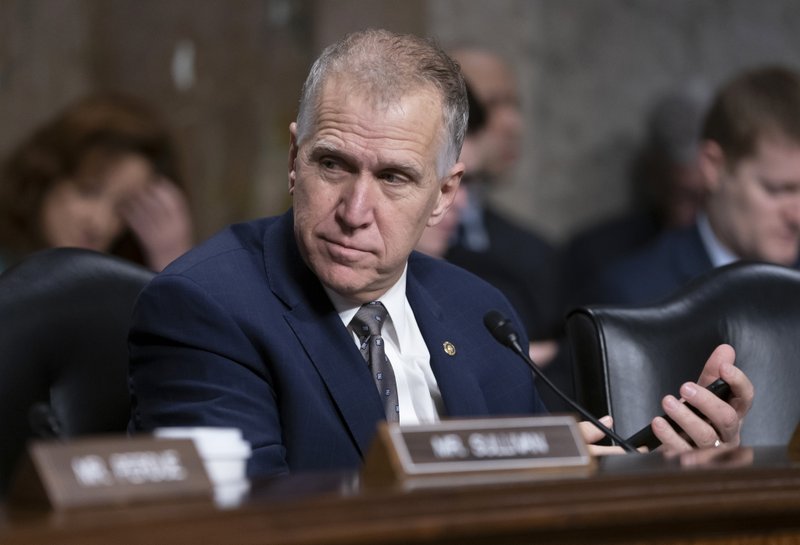North Carolina Republican Sen. Thom Tillis and Democrat Cal Cunningham battled over the government’s COVID-19 response and a future vaccine in a debate Monday, kicking up a notch a campaign that could determine the Senate’s control.
Tillis, who is seeking a second term, was largely the aggressor in their first televised debate for the seat in a closely watched race in the closely divided state. Democrats need to win four additional seats in November to ensure control.
Tillis, a former state House speaker who beat incumbent Kay Hagan six years ago, said he’s worked hard while in Washington to get relief funds to North Carolina’s schools and for vaccine research. He said President Donald Trump also took a “good first step” early on by imposing a travel ban from China.
Tillis accused Cunningham of failing to back the Senate’s latest virus relief package that lacks elements of the Democrats’ preferred HEROES Act bill. Cunningham said there are a lot of positives in the Senate bill but it doesn’t go far enough.
“In a crisis you don’t go for perfect. You go for good steps in the right direction,” Tillis said at a Raleigh television studio, adding Cunningham was “for every provision of the bill but for the fact that he would vote against it.”
But Cunningham, a Raleigh attorney and Iraq War veteran who ran for Senate 10 years ago, blamed Tillis for failing to act after the first time he was briefed on the virus in late January.
“I think that we are seeing and experiencing an unprecedented failure of leadership in this country,” he said, without directly mentioning Trump. “By his own admission, Sen. Tillis did nothing for over a month.” But Tillis countered by saying the January briefing still raised uncertainty about the extent of the virus’ danger.
On a potential rapid arrival of a coronavirus vaccine, Cunningham said he would be concerned about receiving a vaccine at year’s end unless many questions were answered, especially by the U.S. Food and Drug Administration. He said he’s worried about the influence of politics and big money in Washington in the decision-making related to public health.
“Yes, I would be hesitant, but I’m going to ask a lot of questions. That would be incumbent upon all of us,” Cunningham said. He told reporters afterward in a conference call that he would take the vaccine if the public health officials sign off on its efficacy.
Tillis jumped on Cunningham’s uncertainty, saying a vaccine won’t be released without meeting the FDA’s standards.
“In the middle of a crisis you don’t undermine an effective process of the FDA,” Tillis said, adding that Cunningham’s “statement puts lives at risk and it makes it more difficult to manage a crisis that he pretends to say … he’s up to the task to manage.”
Cunningham’s campaign has outraised Tillis for two consecutive quarters, but both sides should have little problem getting messages out in the final weeks. And Tillis and Cunningham already have been the subjects of $56 million in outside spending during the campaign, according to the Center for Responsive Politics.
Polls showing Cunningham with a slight lead this summer have narrowed as Tillis and allies have gone on the air. They’ve criticized Cunningham for a 2001 vote when he was a state legislator that raised taxes — something that Tillis pointed that vote out again Monday. Tillis also accused Cunningham of misleading the public about his work at a company that received a Paycheck Protecting Program loan. Cunningham dismissed these and other accusations as exaggerated and misleading.
In turn, Cunningham mentioned Tillis’ campaign donations from pharmaceutical companies and insensitive comments by an aide in his Senate office to a cancer survivor. Tillis said the young staffer was disciplined.
On racial injustice, both candidates recognized systemic racism in society. Cunningham said he had a plan to reform police standards. Tillis blamed Democrats for failing to consider the reform bill by the Senate’s lone Black Republican, South Carolina’s Tim Scott.
Both Cunningham and Tillis said they trusted mail-in absentee voting in North Carolina. Tillis said he had requested his absentee ballot a few weeks ago. Cunningham said he would still vote in person during the early-voting period next month.
Outside journalists weren’t permitted to watch the debate within the television station due to safety concerns from COVID-19. The moderator said he and the candidates entered the studio with masks and were properly distanced. Additional TV debates are set for Sept. 22 and Oct. 1.
Photo via WRAL-TV and AP.

